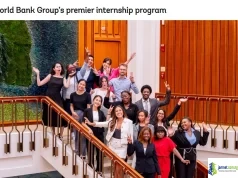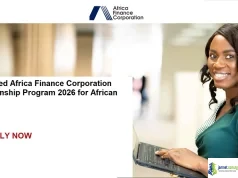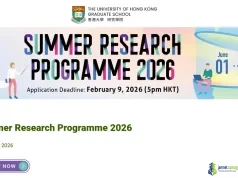The 2026 Google Student Researcher Program is a paid opportunity designed to foster academic collaborations by allowing students to work directly with Google research scientists and engineers on open-ended, exploratory research projects. It is primarily intended for students currently enrolled in a full-time degree program in the EMEA region who will be returning to their program after completion. Minimum qualifications include pursuing a Bachelor’s, Master’s, or PhD in a related field (e.g., Computer Science, Statistics, or Natural Sciences), and experience in a core area of computer science (e.g., Machine Learning or Computer Vision). The program offers a salary/regular pay. Applications are reviewed on a rolling basis, with an anticipated window until February 26, 2026


Google Student Researcher Program 2026 Summary Table
| Detail | Value |
|---|---|
| Host Institution | |
| Study Abroad | N/A (Professional Research) |
| Category | Internships |
| Eligible Countries | All Countries (Focus on EMEA region students) |
| Reward | Salary |
| Key Criteria | Currently Pursuing Master’s, PhD, or Bachelor’s; Experience in Computer Science/Machine Learning; Returning to Degree Program |
| Application Deadline | February 26, 2026 (Rolling Basis) |
The Google Student Researcher Program offers a unique, paid opportunity for students to engage directly with world-class research scientists and engineers at Google. Unlike traditional internships, this program offers significant flexibility and focuses on open-ended and exploratory research projects that may not have a defined final deliverable. Its primary objective is to foster academic collaborations and develop solutions for real-world, large-scale problems.

Join our Telegram Channel for Instant Scholarship Updates
Benefits and Specific Awards of the Google Student Researcher Program
The program is structured as a paid research position, providing both financial compensation and invaluable professional development.
Tier 1: Core Financial Award (Salary and Pay)
This tier details the direct financial support and work compensation provided to the accepted Student Researchers.
- Regular Pay and Salary: As a Student Researcher, participants receive regular pay and salary during the program period, making it a fully compensated work experience.
Tier 2: Core Program Focus and Scope (Research, Training, and Flexibility)
This tier highlights the developmental and operational aspects, emphasizing the program’s unique structure.
- Direct Research Collaboration: Participants gain the unparalleled opportunity to work directly with Google research scientists and engineers on critical research projects.
- Problem Solving: Researchers participate in developing solutions for real-world, large-scale problems that are central to Google’s mission and future technologies.
- Flexibility: The program allows for flexibility beyond the limitations of the traditional internship program on aspects such as duration, time commitment, and working location, with options for on-site or remote participation.
Tier 3: Key Requirements and Skills Emphasis
Selection prioritizes a strong background in computer science, mathematics, or related fields, alongside prior research experience and technical proficiency.
- Academic Background: Candidates must possess a Bachelor’s, Master’s, or PhD degree (or equivalent practical experience) in key STEM disciplines, including Computer Science, Linguistics, Statistics, Biostatistics, Applied Mathematics, Operations Research, Economics, or Natural Sciences.
- Core Technical Experience: Applicants must have experience in at least one area of computer science, such as Natural Language Understanding, Machine Learning, Deep Learning, Computer Vision, Data Science, or Software Engineering.
- Programming Skills: Experience with one or more general purpose programming languages (e.g., C/C++, Java, MATLAB, Go, Python, etc.) is highly preferred.
- Prior Research Experience: Experience as a researcher (including internships, full-time positions, or lab work) and contributing to research communities (publishing papers) are strongly preferred.
Eligibility Requirements for 2026 Google Student Researcher Program
To be considered for the Google Student Researcher Program, applicants must meet specific enrollment and academic criteria, particularly for those in the EMEA region.
- Academic/Leadership (Minimum Qualifications):
- Currently pursuing a Bachelor’s, Master’s, or PhD degree in Computer Science, Linguistics, Statistics, Biostatistics, Applied Mathematics, Operations Research, Economics, or Natural Sciences, or equivalent practical experience.
- Experience in one area of computer science (listed in Tier 3).
- Study Status (Preferred Qualifications):
- Currently enrolled in a full-time degree program in the EMEA region.
- Must be returning to the degree program after the completion of the internship.
- Visa Status:
- Open to students from All Countries, though the program is intended for students in the EMEA region.
- No IELTS is explicitly required.
How to Apply for 2026 Google Student Researcher Program (Step by Step)
The application process is done online and emphasizes the submission of an updated CV/resume and academic transcript. The rolling deadline requires prompt action.
- Prepare Documents: You will need an updated CV or resume and a current unofficial or official transcript in English. PDFs are preferred.
- Click “Apply” Button: Click the “Apply” button below to access the application portal.
- Upload CV/Resume: In the “Resume Section,” attach your updated CV or resume.
- Upload Transcript: In the “Education Section,” attach your current or recent unofficial or official transcript in English. Under “Degree Status,” select “Now attending” to facilitate the transcript upload.
- Submit Application: Complete and submit the online application form.
Application Deadline: February 26, 2026 (Applications reviewed on a rolling basis; apply early)
CLICK HERE TO APPLY
For more Information Click HERE
Frequently Asked Questions (FAQ)
1. What is the primary focus of the Google Student Researcher Program?
The primary focus is to foster academic collaborations with students by having them work on open-ended, exploratory research projects with Google scientists and engineers.
2. Is this a paid position, and what financial benefits are provided?
Yes, this is a paid position. Participants receive regular pay and salary for their work during the program.
3. What educational levels are eligible for this program?
Students currently pursuing a Bachelor’s, Master’s, or PhD degree in a relevant field (Computer Science, Statistics, etc.) are eligible.
4. What is the core geographic requirement for applicants?
The program is primarily intended for students enrolled in a full-time degree program in the EMEA region who plan to return to their degree program after the research period ends.
5. What are the key academic fields required for a minimum qualification?
Minimum qualifications require a degree in Computer Science, Linguistics, Statistics, Biostatistics, Applied Mathematics, Operations Research, Economics, or Natural Sciences.
6. What kind of flexibility does the Student Researcher Program offer?
The program allows for flexibility in duration, time commitment, and working location, with options available for both on-site or remote work.
7. What two key documents are required for the application?
Applicants must submit an updated CV or resume and a current unofficial or official transcript in English.
8. Is the application deadline strict, or is it rolling?
The application window is anticipated to remain open until February 26, 2026, but applications are reviewed on a rolling basis, meaning the window may close earlier if all projects are filled.
9. What type of experience is preferred for candidates?
Preferred experience includes being a researcher (internships, full-time, or lab work), contributing to research communities (publishing papers), and proficiency in general-purpose programming languages (e.g., Python, Java).
10. Do the research projects have clear, defined deliverables?
No, the topics tend to be open-ended and exploratory, and they don’t always have a clear deliverable like a traditional internship would.













